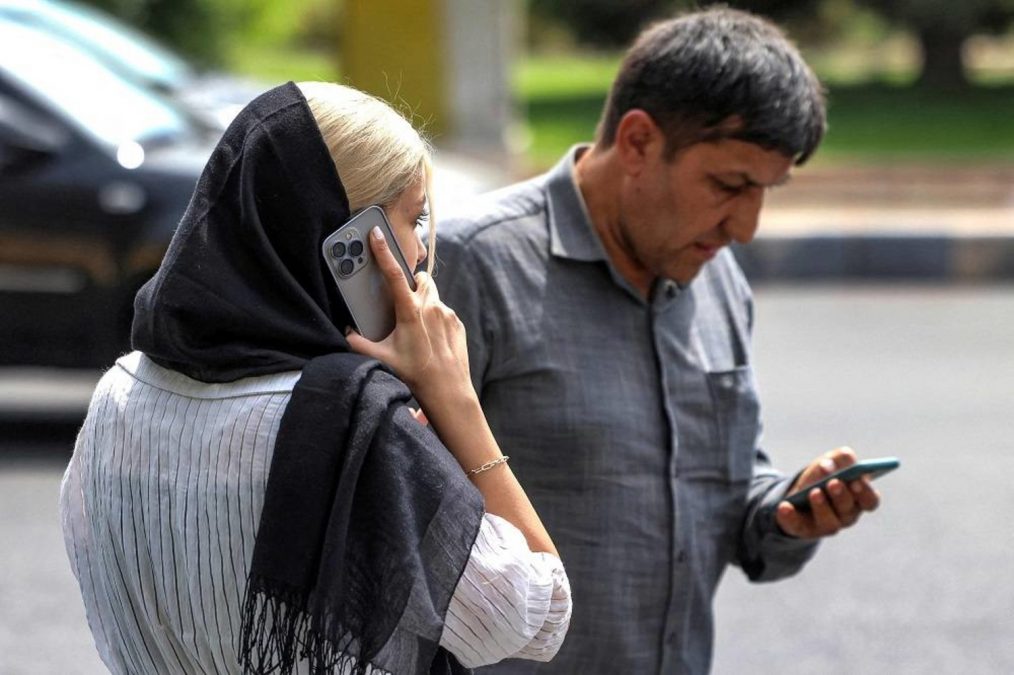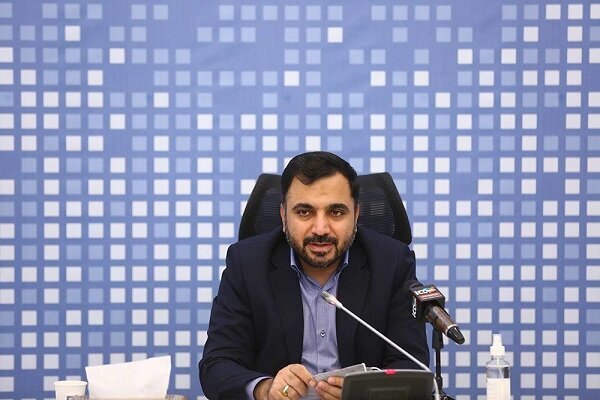The Minister of Communications is concerned about the government’s treasury or service.
The Minister of Communications is concerned about the government’s treasury or service, while analysts say that the reason for the increase in internet service tariffs is not network development and the government is benefiting from it. The Minister of Communications, without mentioning the government’s revenue and inflation, considered the upgrade of the internet network as the reason for the price increase. Isa Zarifpour, the Minister of Communications and Information Technology, said on Thursday, January 3rd, after the Cabinet meeting, about the increase in internet prices in Iran, that we had no choice but to impose an increase in prices considering the network conditions in order to improve the network quality.
Zarifpour added that a gift package has been considered to encourage people to register their numbers and use the internet, which includes 12 gigabytes of domestic traffic or its equivalent of 5 gigabytes of international traffic. After the whispers that have been circulating in recent weeks, the media of the Islamic Republic announced on Friday, January 7th, that the internet in Iran has become at least 30% more expensive. Some media outlets also wrote that the internet has become 34% more expensive.
Previously, the Minister of Communications and Information Technology had also announced that the increase in internet prices would only be approved if operators commit to improving their network quality. Based on this, the CEOs of the operators accepted the following conditions: increasing the coverage of 5G sites to 10% by the end of 2024, increasing the coverage of 4G in the country to 96% by the end of 2024, and a 30% increase in average internet speed in the next six months.
It was agreed that if the conditions are not met on time, operators will be fined. In response to the announcement of the internet price hike, the Young Journalists Club, affiliated with the Islamic Republic of Iran Broadcasting, announced that tariffs have tripled instead of the proposed 30% increase. Digito, a specialized technology and communications website, also reported that the price analysis shows a one-month 1GB package on Irancell and Hamrah Avval has increased from 10,500 toman to 14,100 toman, representing a 34% price increase.
While the Minister of Communications claims to be improving the internet network, Navid Aghaei, a virtual space analyst, stated in an interview with the Iranian Labor News Agency (ILNA) on Thursday, 13th of Dey, that increasing the tariffs for internet services is not for network development. The operators themselves used to say that if it is not immediately increased by 100%, we will go bankrupt. Now, how do they expect to upgrade the network with only about a 30% increase in tariffs?
Aghaei added that the government is interested in increasing the internet prices in the country. This price increase takes place in a situation where the policymaker is more aware than anyone else of the economic pressure on the people. However, his main priority is other issues.

According to this analyst, the discussion of service quality is also a joke because it is clear that in the Telecommunication Company, the dissatisfaction of past users and retirees of this company gather every day at a point to receive their claims.
There are no serious competitors to the main communication service companies in Iran, and they say that if prices do not go up, we will go bankrupt. Mr. Ahadi said that it’s not just about tariffs, billions of expenses are incurred by subsidiary companies, and they also face monopolies and eventually go bankrupt. Jalil Rahimi Jahanaabadi, the representative of Torbat-e-Jam in the Islamic Consultative Assembly, considered the 30% increase in internet prices without any justification and warned that this issue creates dissatisfaction among the people on the eve of the elections.
Jabar Kuchakinezhad, the representative of Rasht in the Islamic Consultative Assembly, also criticized the increase in internet tariffs, saying that while the government resists increasing salaries, it has increased internet prices by 30% and more. According to him, the internet has become more than 30% expensive while salaries have only increased by 18%.
Yesterday, on Tuesday 12th of Dey, Mahdi Rohanian, the Deputy for Strategic Planning and Market Development of the Regulatory Authority for Radio and Communications, attributed the increase in internet tariffs to inflation. He stated that various investigations were conducted regarding the calculation of the tariff increase, but it was crucial for us to align it with the inflation rate. According to Rohanian, operators have been requesting this since last year, and the implemented decisions belong to the year 1396 (Solar Hijri calendar), and there has been no price change in the past few years.
Internet prices have increased despite the fact that the laws governing the internet in Iran severely restrict access to the internet worldwide, and people always use VPNs to access websites.
In its annual report released in October 2023, the non-governmental organization Freedom House announced that Iran had the highest decline in the internet freedom index worldwide in 2023 compared to 2022, with a negative score of five out of 100. Digital repression has intensified in Iran. Following Iran, the countries with the highest drop in this index were the Philippines, Belarus, Costa Rica, and Nicaragua. The Islamic Republic of Iran has also been implementing national internet to further restrict and control the internet for years.
Persian
مشاهده این مقاله به زبان فارسی


